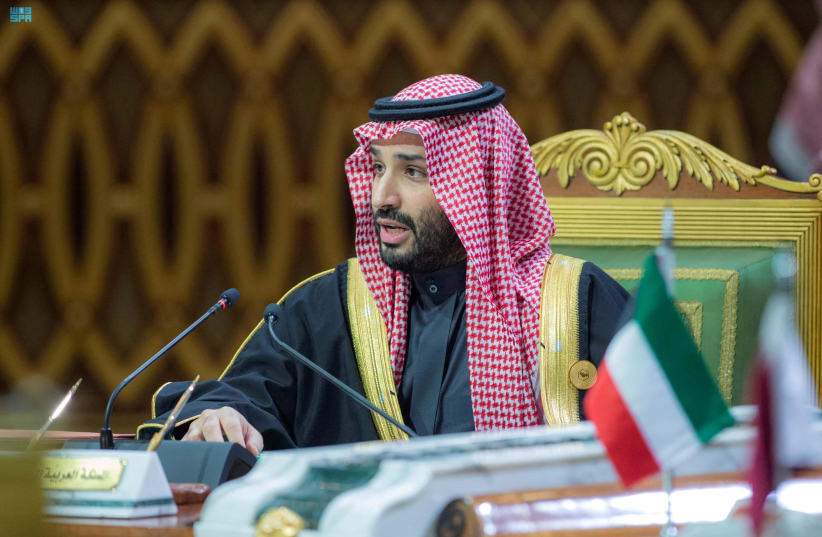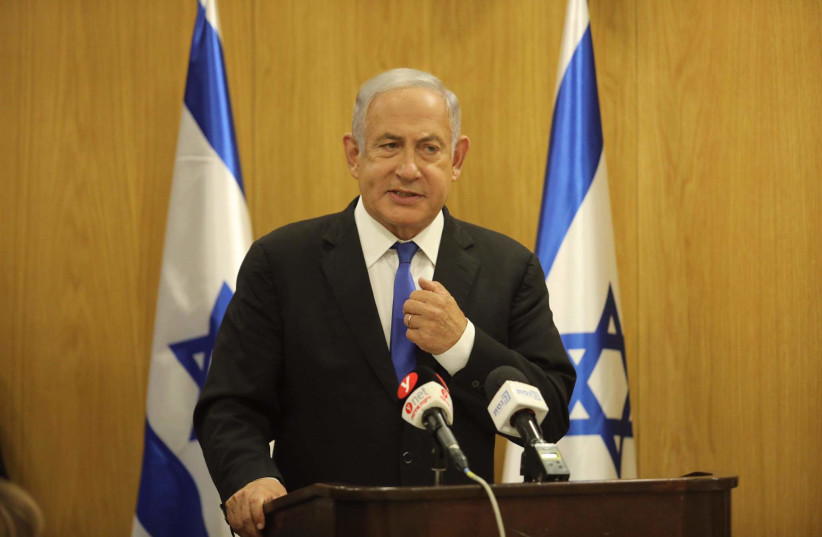On November 2, 2018, during a trip to Varna, Bulgaria, then-prime minister Benjamin Netanyahu addressed the murder of Saudi journalist Jamal Khashoggi a few weeks earlier in Turkey.
“What happened in the Istanbul consulate was horrendous and it should be duly dealt with,” he said. Then, turning to Saudi involvement, he added: “Yet at the same time, I say that it is very important for the stability of the world, of the region and of the world, that Saudi Arabia remains stable.”
A few days earlier, then-ambassador to the US Ron Dermer said much the same during an appearance at a synagogue in Houston, though in more colorful language.
“I think the administration, when they know all the facts, [is] going to have to decide how can they, on the one hand, make clear that this action is unacceptable, but also not throw out the prince with the bathwater,” he said in reference to Saudi Crown Prince Mohammed bin Salman (MBS), whom an American intelligence report has since concluded ordered the murder.
“I think the administration, when they know all the facts, are going to have to decide how can they on the one hand make clear that this action is unacceptable, but also not throw out the prince with the bathwater.”
Ron Dermer
Netanyahu, Dermer and Israel were harshly criticized in some quarters for these remarks. Interestingly, some of this criticism came from the same quarters where people, while aghast at Saudi Arabia’s human rights violations, were calling for the US to take a more conciliatory position toward Iran, despite the Islamic Republic’s abhorrent human rights record.
Jackson Diehl, a columnist at The Washington Post (where Khashoggi was also a columnist), tore into Israel in a column headlined “Why is Israel tossing the Saudis a lifeline?”
“You wouldn’t think Israel, in contrast to every Western democracy, would be explicitly endorsing a latter-day version of Saddam Hussein – a man so toxic that even K Street lobbyists are rejecting his money. And yet Netanyahu is emerging as Mohammed bin Salman’s friend-in-need,” Diehl wrote.
“You wouldn’t think Israel, in contrast to every Western democracy, would be explicitly endorsing a latter-day version of Saddam Hussein – a man so toxic that even K Street lobbyists are rejecting his money. And yet Netanyahu is emerging as Mohammed bin Salman’s friend-in-need.”
Jackson Diehl
He ended the column with the following warning: “The spectacle of an Israeli leader lobbying to excuse an Arab dictator for murder will only compound the damage he has done to his country’s relationship with the United States.”
Diehl’s righteous indignation was reminiscent of the righteous indignation of another well-known columnist, The New York Times’ Thomas Friedman, when Netanyahu and Israel did not cheer on the Arab Spring in 2010.
“The children of Egypt were having their liberation moment,” he wrote in one column from Cairo. “And the children of Israel decided to side with Pharaoh – right to the very end.”
The larger issues
What neither Diehl nor Friedman refused to grasp was that Netanyahu was not rooting for the pharaohs nor for the Arab dictators. Rather, he realized that it was important to look beyond the moment at the larger strategic issues at stake.
Israel was concerned that following the Egyptian revolution that began at Tahrir Square, Sinai would turn into a terrorist base, the Egypt-Israel gas pipeline would be a constant target of attack, Israeli-Egyptian ties would suffer, and the Muslim Brotherhood would come to power. All of which, by the way, duly transpired.
Netanyahu did not advise against the US dismissing the Saudis as an ally because of any affection for the Saudi monarchy or its autocratic rule but out of a realization that Saudi Arabia is an important bulwark in the region against Iran – and one that will be important in the future for regional stability.
The world has realized that the Arab Spring was anything but a springtime for democracy, and as US President Joe Biden’s scheduled trip to Saudi Arabia after coming to Israel next month indicates, the US now realizes that summarily dumping Riyadh as an ally is not sound policy.
During the 2020 presidential campaign, it was Biden who took the Trump Administration to task for not taking a tougher line on Saudi Arabia and said the country should be treated as a “pariah” state. And, indeed, it was Biden, who just weeks into his presidency, refused to have direct contact with MBS; and it is Biden now – as Dermer said in a JINSA podcast on Tuesday – who is going with “gas canister in hand” to Saudi Arabia. Needless to say, he is expected to meet MBS.
In the American effort to balance values against interests, values are taking a back seat as gasoline prices in the US now average an unprecedented $5 a gallon. The raging war in Ukraine and the US decision to slap sanctions on Russian oil imports have created a significant oil supply gap. Before the war, Russia was providing about 10% of the world’s oil needs. That is no longer the case, and the US now needs the Saudis to increase their production to bridge the gap.
What is clearly emerging from Biden’s upcoming trip to the Middle East is that his visit to Israel and the Palestinian Authority is just a sideshow. Saudi Arabia is the main event.
This was shown clearly in a press briefing that a senior administration official gave Monday about the trip, when of the four questions asked, only one tangentially had to do with Israel; that was a technical question regarding whether Biden would be meeting Palestinian Authority President Mahmoud Abbas in Ramallah or Bethlehem.
Furthermore, if holding discussions in Israel with Israeli leaders were the main purpose of the trip – rather than repairing the fractured ties with the Saudis – Biden would probably postpone until the current political crisis passes. Because why come to Israel in a month’s time when it is not even clear who will be the prime minister by then?
Perhaps Bennett will still be in power, or perhaps Foreign Minister and Alternate Prime Minister Yair Lapid will be calling the shots before a new government is formed. Or perhaps – though this is a long shot – Netanyahu will return to his old job as a result of a parliamentary maneuver in the Knesset. Why expend all the time and energy preparing for a meeting with a prime minister in a month who may not even be the prime minister when Biden arrives, or who may be unseated just a week or two after Biden leaves?
The reason?
Because Israel is a sideshow, and Biden does not have time to wait to patch things up with the Saudis. The US midterm elections are a mere four and a half months away, and an already dismal forecast for the Democrats is getting worse as gas prices are at historic highs and inflation is running at some 8.6%.
Lapid said in a press conference on Wednesday that Biden will be coming to Israel regardless of the current political instability. You bet he will. Israel is just a stopover on the way to Riyadh, and Biden is in need of the Saudis.

